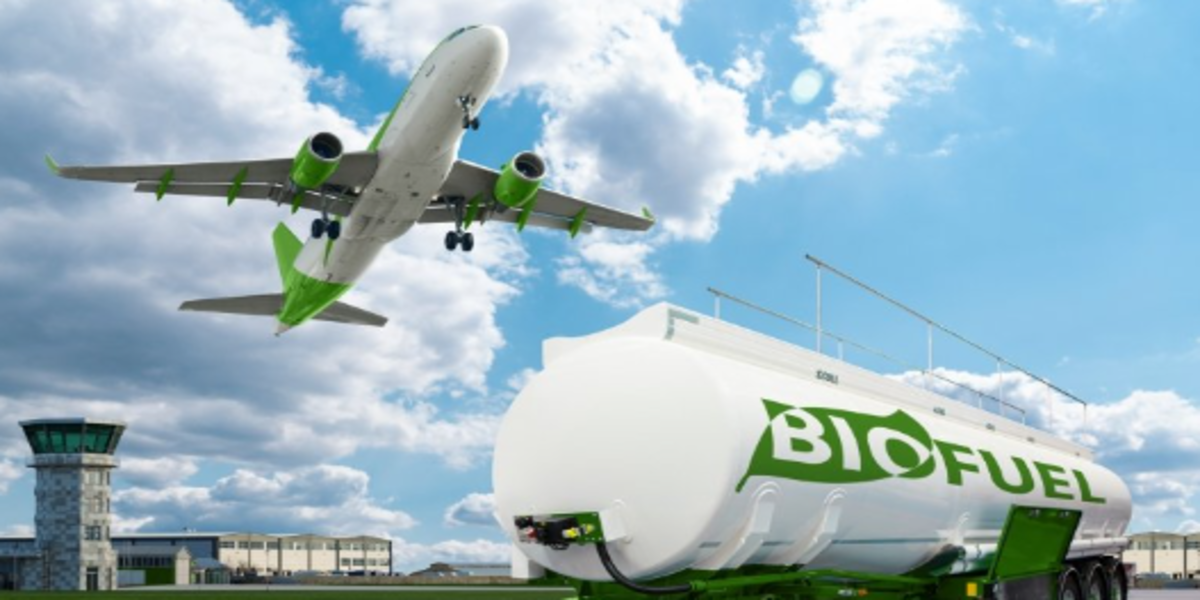In an era where environmental issues are predominant, industries worldwide are re-evaluating their practices to minimize their carbon footprint. The aviation sector, known for its significant emissions contribution, has been examined carefully for its environmental impact. However, amidst the challenges, a glow of hope emerges in the form of Sustainable Aviation Fuel (SAF). This blog delves deep into the environmental benefits of SAF and its potential to transform the aviation industry into a more sustainable entity.
Understanding Sustainable Aviation Fuel
SAF, also known as biofuel, is derived from renewable resources. This includes agricultural residues, waste oils, algae, and non-food crops. Unlike conventional jet fuel, which is primarily from fossil fuels, SAF offers a cleaner and more sustainable alternative. Since it blends with traditional jet fuel at different levels with limits between 10% and 50% or used as a drop-in replacement, making it a feasible option for aircraft operations. Worldwide, aviation accounts for 2% of all carbon dioxide (CO2) emissions and 12% of all CO2 emissions from transportation.
Benefits of sustainable aviation fuel
The main environmental benefits of sustainable aviation fuel (SAF) are:
Reducing Carbon Emissions
Firstly, most significant environmental benefits of sustainable aviation fuel is its ability to reduce carbon emissions. Unlike conventional jet fuel, SAF is derived from renewable sources. This means it has a lower carbon footprint. Studies have shown that SAF can reduce lifecycle carbon emissions by up to 80% compared to conventional jet fuel. Compared with conventional jet fuel, 100% SAF has the potential to reduce greenhouse gas emissions by up to 94% depending on feedstock and technology pathway. Similarly this reduction in carbon emissions is crucial for mitigating the aviation industry’s impact on climate change. With aspirations to reach Net Zero emissions by 2050, SAF provides the best short term opportunity to the aviation sector to meet these goals.
Lowering Particulate Matter Emissions
In addition to reducing carbon emissions, SAF also helps lower particulate matter (PM) emissions. PM is a type of air pollution that can harm human health and the environment. Also by using SAF, aircraft emit fewer particulates, resulting in improved air quality and reduced health risks for passengers and communities near airports.
Decreasing Dependence on Fossil Fuels
Another significant environmental benefit of sustainable aviation fuel is its potential to decrease dependence on fossil fuels. As a renewable resource, SAF offers a sustainable alternative to traditional jet fuel derived from finite fossil fuel reserves. Therefore, by diversifying the aviation industry’s fuel sources and reducing reliance on fossil fuels, SAF contributes to long-term energy security and sustainability.
Promoting Sustainable Practices
Beyond its direct environmental benefits, sustainable aviation fuel also plays a crucial role in promoting sustainable practices within the aviation industry. Therefore, Airlines and aviation stakeholders increasingly adopt SAF as part of their sustainability initiatives, demonstrating their commitment to reducing environmental impact. And this shift towards sustainability encourages innovation, investment in renewable energy, and collaboration across the aviation sector.
Support for Renewable Energy
SAF production relies on renewable feedstocks. It includes biomass, waste oils, or algae, which can be replenished through sustainable practices. By supporting the deveopment and utilization of renewable energy sources, SAF contributes to the transition towards a more sustainable energy future.
Diversification of Fuel Sources
SAF diversifies the aviation industry’s fuel sources by offering a sustainable alternative to traditional jet fuel derived from finite fossil fuel reserves. By reducing dependence on fossil fuels, SAF helps enhance energy security and sustainability in the long term.
Global Reduction of Greenhouse Gas Emissions
The widespread adoption of SAF can reduce greenhouse gas emissions globally. Thus SAF offers a feasible solution for the aviation industry to meet emissions reduction targets and contribute to international efforts to combat climate change.
Enhanced Environmental Sustainability
Overall, SAF contributes to enhanced environmental sustainability in the aviation industry by reducing carbon emissions, lowering particulate matter emissions, diversifying fuel sources, promoting sustainable practices, supporting renewable energy, and reducing the industry’s overall environmental footprint. As the aviation sector continues to embrace SAF, it moves closer to achieving its environmental goals and ensuring a more sustainable future for aviation.
Khaitan Bio Energy: Pioneering Sustainable Solutions
The demand for SAF is increasing day by day. Meanwhile, Khaitan Bio Energy focusses to emerge as a prominent player in India’s biofuel sector. Ethanol, as one of the renewable fuels, is being produced on a large scale and at a competitive price to meet the growing demand for SAF. Khaitan Bio Energy specializes in producing 2G ethanol, a key component in SAF production, utilizing its expertise in biofuel manufacturing. This type of ethanol, sourced from non-edible biomass like agricultural residues offers an eco-friendly alternative to conventional fossil fuels.
With its patented process and a focus on innovation, Khaitan Bio Energy looks to be at the forefront of India’s SAF supply chain. By delivering high-quality 2G ethanol at a significant scale, the company aims to contribute to India’s SAF blending objectives, promoting sustainable aviation projects, and driving economic development in rural areas.
Conclusion
In conclusion, Sustainable Aviation Fuel represents a significant step towards making the aviation industry more environmentally sustainable. By reducing carbon emissions, lowering particulate matter emissions, decreasing dependence on fossil fuels, and promoting sustainable practices, SAF offers a viable solution to the aviation sector’s environmental challenges. As the industry continues to embrace SAF and invest in sustainable technologies, we move closer to a future where aviation and environmental stewardship go hand in hand, ensuring cleaner skies for generations to come.

